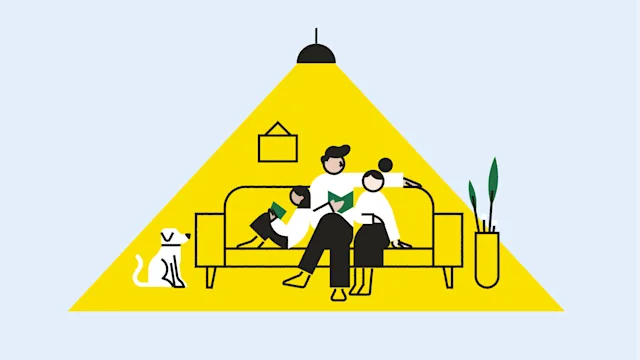Key takeaways:
Manipulation in relationships can occur when your partner tries to influence you or control your behavior — usually for their own self-interest.
Signs of manipulation include a partner forbidding you to see family and friends, controlling your finances, and pressuring you to do things that make you uncomfortable.
Manipulation is a type of emotional abuse. If you’re in a manipulative relationship, there are many resources that can help, including the National Domestic Violence Hotline.
Manipulation is when another person tries to change how you think, behave, or feel by using dishonest or abusive tactics. It can show up in any type of relationship, including romantic ones. And the desired changes are usually in the other person’s best interest — not yours.
Let’s take a closer look.
What is a manipulative relationship?
A manipulative relationship is a relationship where your partner tries to influence or control you. They might use manipulation to try to make you act in a certain way, agree to something, or adopt a belief. Manipulation is a type of emotional abuse.
This is different from a healthy relationship, where both partners respect and trust one another. Healthy relationships also have a balance of power, rather than one person having most of the power and control.
Remember: It can be hard to identify a manipulative relationship. In some cases, manipulation may be obvious. Other times, it’s hard to spot. And many times, the person being manipulated might not even realize that it’s happening.
And unfortunately, manipulation often happens behind closed doors — which means it can be hard for other people, like your friends and family, to see what’s really going on.
Quiz: Is my relationship toxic?
Signs of a manipulative relationship
When you’re in a manipulative relationship, your partner might lie to you, pressure you to do things, or try to break you down mentally. This can show up in many different ways, including:
Making you feel guilty
Showering you with “over the top” affection (love bombing)
Lying to you about their activities or whereabouts
Calling you names, criticizing you, or putting you down
Using gaslighting to make you question yourself
Demanding to make decisions on your behalf
Controlling your money
Forbidding you to see or speak to your friends and family
Demanding access to your email, social media, and devices
Threatening to hurt you, themselves, or others
Pressuring you to do things you aren’t comfortable with
Pushing you to use drugs or alcohol
Using violence to make you think, behave, or feel a certain way
What are the best ways to address manipulation?
It depends. You might decide to try to work on the relationship. Or you might decide to end the relationship altogether. You may even begin trying to work on it and realize that your partner isn’t open to change and then decide to end it.
Read more like this
Explore these related articles, suggested for readers like you.
Many people who are in abusive relationships feel stuck. They are unsure what the “right” thing to do is, and they feel frozen. If this sounds like you, here are some things that might help:
Meeting with a therapist who specializes in relationship issues
Speaking with a crisis counselor (more on this below)
Attending a support group
Meeting with a therapist, crisis counselor, or support group is a good way to gain clarity so that you can make a decision. They may also be able to help you understand whether it’s safe to stay in the relationship or not.
Can couples therapy help?
Possibly. Couples therapy may be an option if there’s some manipulative behavior in your relationship — but only if it’s not to the point of being abusive.
If you are in an abusive relationship, couples therapy is not recommended. Therapy can’t be a safe space when abuse is present in a relationship.
If you’re unsure whether couples therapy would be appropriate for your relationship, it can be a good idea to speak to a professional on your own first (without involving your partner). They can give you feedback on whether couples therapy could be helpful or harmful based on your specific situation.
How to get out of a manipulative relationship
For some people, deciding to end a manipulative relationship is the best choice. Special care needs to be taken when taking steps to end a relationship where there is manipulation and abuse.
Speaking with a trained professional can be helpful when planning to get out of a manipulative relationship. A therapist or counselor can help you plan for how to end the relationship safely. The National Domestic Violence Hotline is one way to get free and confidential support. You can contact the hotline by calling 1-800-799-SAFE (7233) or texting “START” to 88788.
When ending a manipulative relationship, consider the following:
Identify a safe place to stay, whether it’s with a friend, family member, or a shelter.
Create a safety plan.
Take precautions to maintain safety while using the internet, email, and electronic devices.
Contact your local family court for information on filing for a restraining order, if necessary.
Keep any evidence of abuse, such as police reports and pictures, and bring it with you.
Ending an abusive relationship can be a difficult and dangerous process. Some people leave and return to the relationship several times before leaving for good. Whether you’re thinking about leaving or ready to leave, support is available to you. You do not have to go through it alone.
What resources are available to help deal with a manipulative relationship?
If you or someone you know is in a manipulative relationship, help is available.
If you or a loved one are in immediate danger, contact 911. For additional support, you can contact:
National Domestic Violence Hotline: The hotline is available 24/7 by phone, text, and chat. To get in touch, call 1-800-799-SAFE (7233) or text “START” to 88788.
National Sexual Assault Hotline: You can reach the hotline 24/7 by calling 1-800-656-HOPE (4673).
Love Is Respect: The organization offers information on relationships and support for those in unhealthy relationships. To reach Love Is Respect, call 1-866-331-9474 or text “LOVEIS” to 22522.
When you’re in an unhealthy relationship, it can be difficult to make the decision to leave. A mental health professional can provide support and help you move forward. To find a mental health provider or facility, contact your health insurance company or do an online search.
You can also contact SAMHSA’s National Helpline at 1-800-662-HELP (4357) or search the directory.
The bottom line
In manipulative relationships, one partner attempts to control the other one by using abusive tactics like humiliation, rejection, and threats. Recognizing a manipulative relationship can be difficult, because many of the tactics are psychological. If you believe that you’re in a manipulative relationship, reach out to a therapist, counselor, or confidential hotline. They can help you explore your options and, if you choose to end the relationship, do so safely.

Why trust our experts?



References
Barnhill, A. (2014). What is manipulation? Manipulation: Theory and Practice.
National Domestic Violence Hotline. (n.d). Internet safety: Stay safe. Stay connected.
National Domestic Violence Hotline. (n.d). Should I go to couples therapy with my abusive partner?
National Domestic Violence Hotline. (n.d). What is emotional abuse?
National Domestic Violence Hotline. (n.d). What is gaslighting?
Office on Women’s Health. (2021). Getting a restraining order. U.S. Department of Health and Human Services.
Office on Women’s Health. (2021). Leaving an abusive relationship. U.S. Department of Health and Human Services.
Wood, A. W. (2014). Coercion, manipulation, exploitation. Manipulation: Theory and Practice.


















